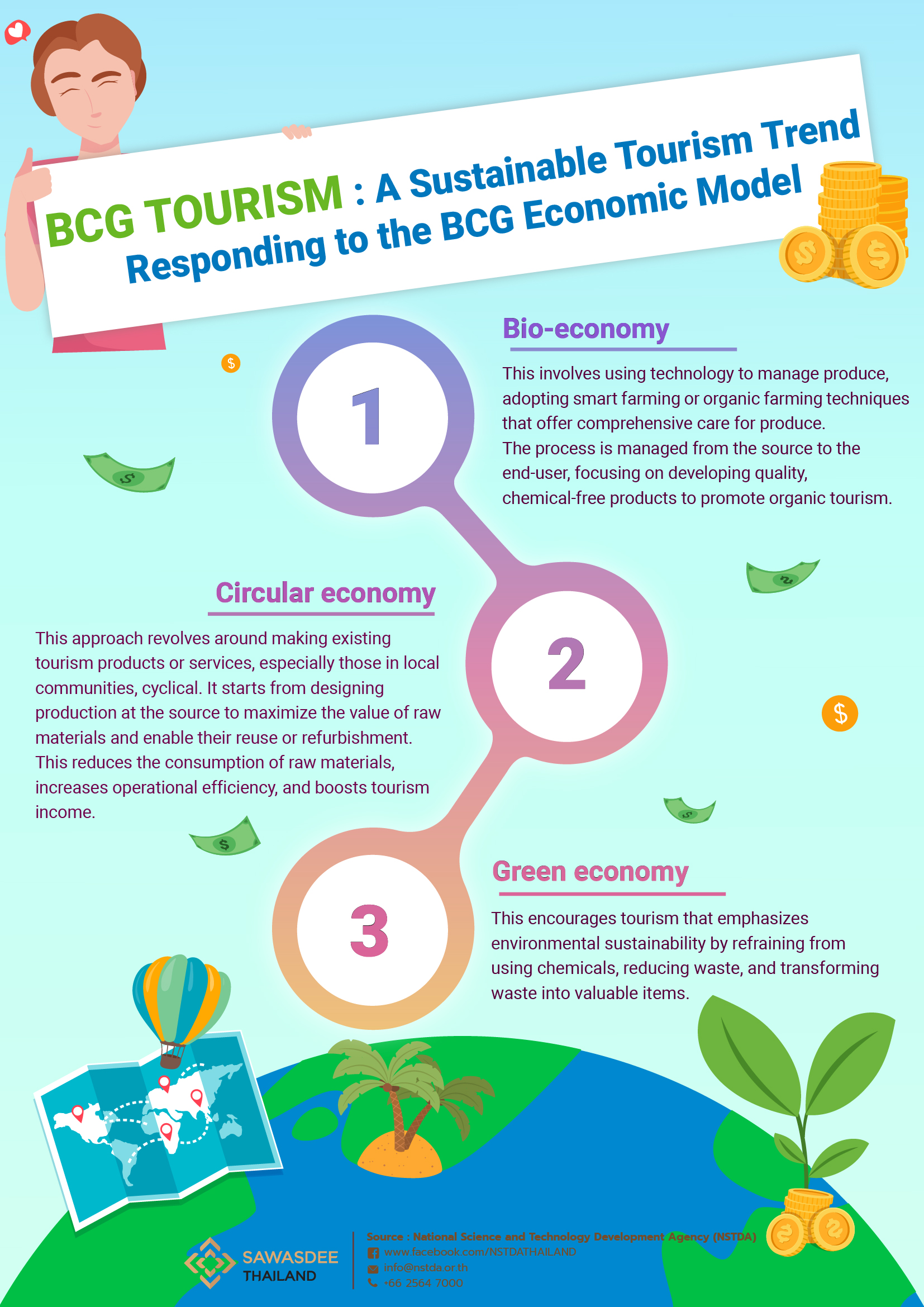
Sustainable tourism, or BCG Tourism, is a trend that's gaining momentum in the current age. It emerges from the drive to develop countries using the Bio-Circular-Green (BCG) economic model, also known as the BCG Model.
BCG Tourism refers to the application of knowledge and technology along the lines of the bio-economy, circular economy, and green economy to tourism, making it more sustainable in its economic development. It involves efficient resource management, systematic transformation of outputs, and emphasizes cooperation from entrepreneurs to conduct responsible tourism. This model promotes resource circulation, reduces energy usage and waste, and avoids pollution or environmental impact. It also shares benefits for the better quality of life of the people, leading to sustainability in all dimensions - society, economy, and the global environment. The different areas of economic development can be explained as follows:
Thailand, with its biodiversity and cultural diversity, such as local community lifestyles, local wisdom, agricultural society, or natural abundance, is an asset for promoting sustainable BCG Tourism. Understanding these strengths could add economic value.
Moreover, Thailand boasts several world-renowned and popular tourist destinations, both cultural and natural. Additionally, the Thai tourism industry has consistently grown. The Tourism Authority of Thailand (TAT) set a tourism revenue target for 2023 from both domestic and international markets at about 1.25 - 2.38 trillion baht, which is an 80% recovery compared to the total revenue before the COVID-19 crisis in 2019, which was at 3 trillion baht.
Data updated on May 30, 2023
Source: National Science and Technology Development Agency (NSTDA)
Tel. +66 2564 7000
